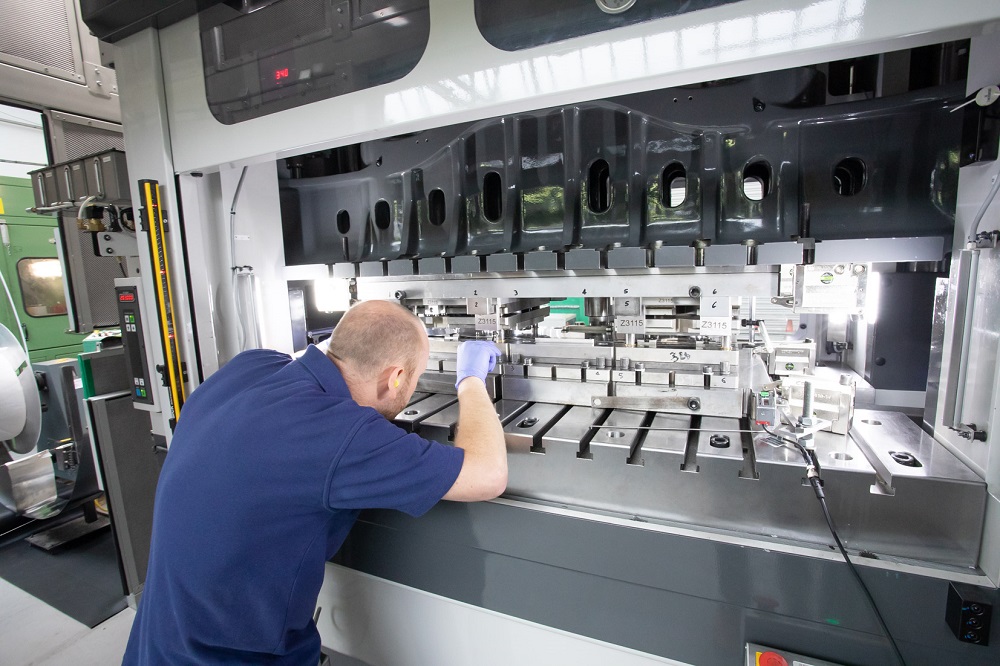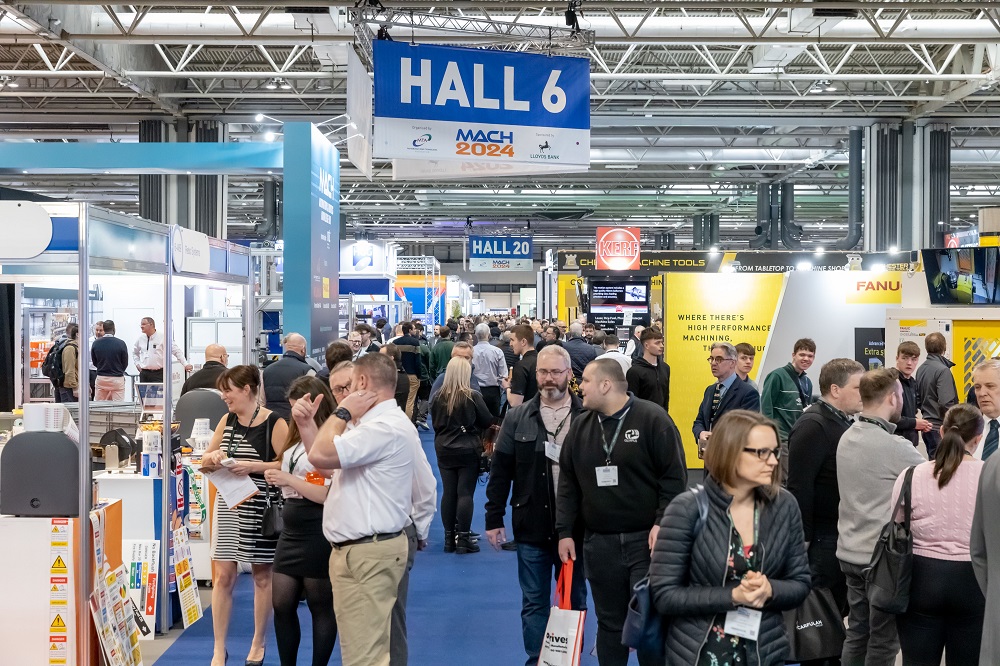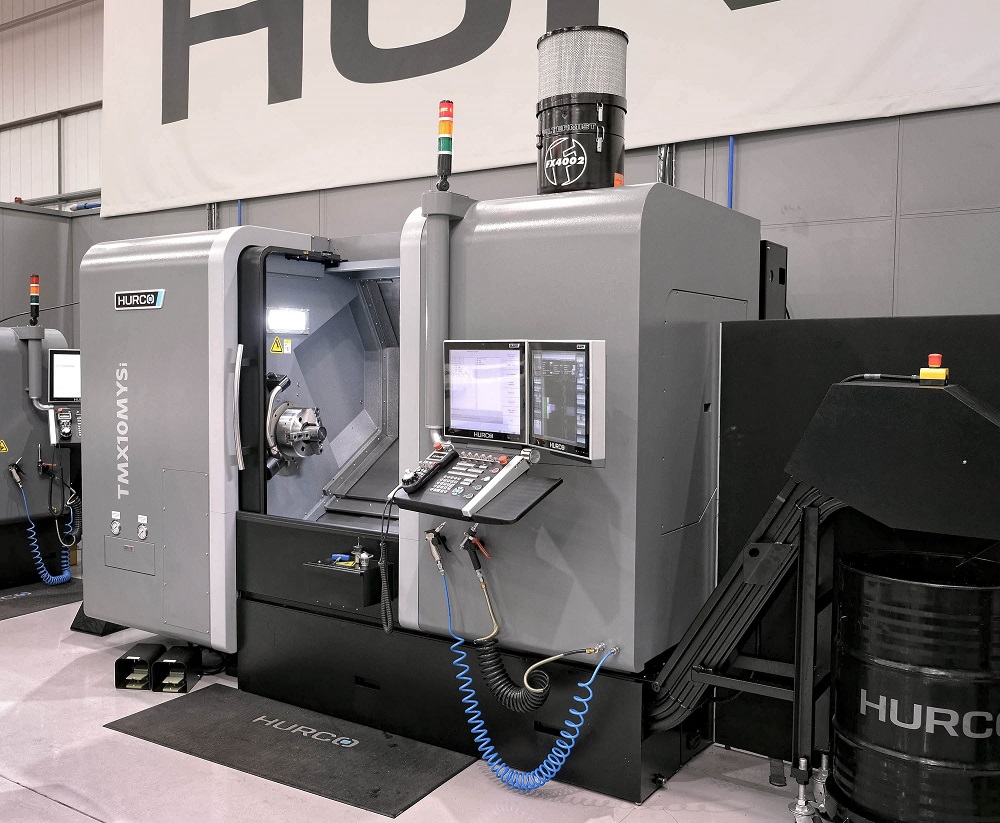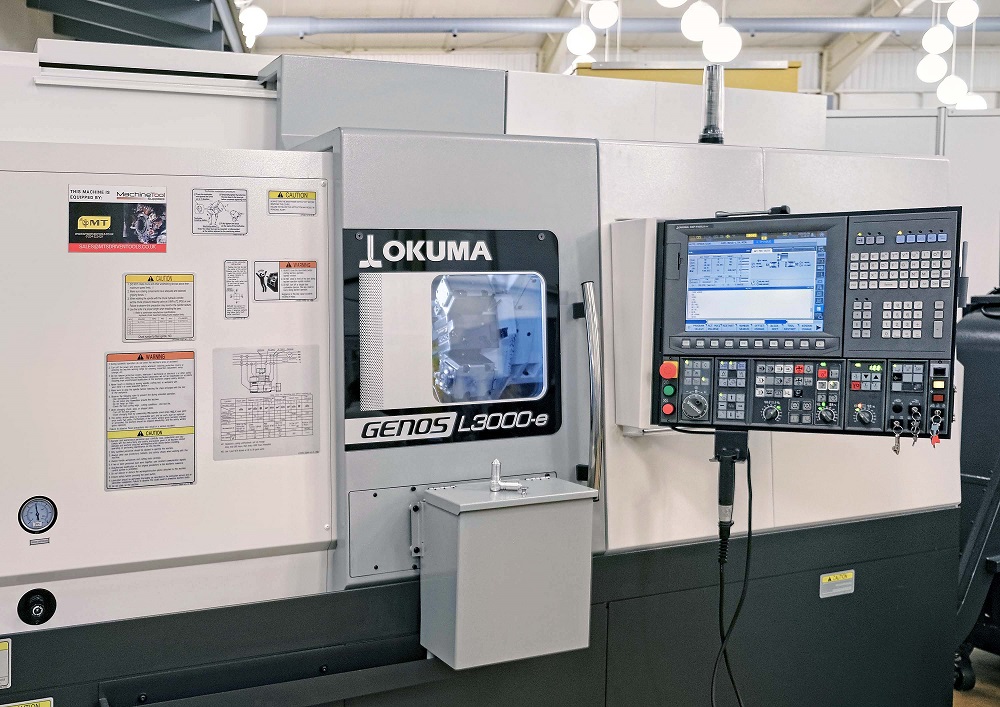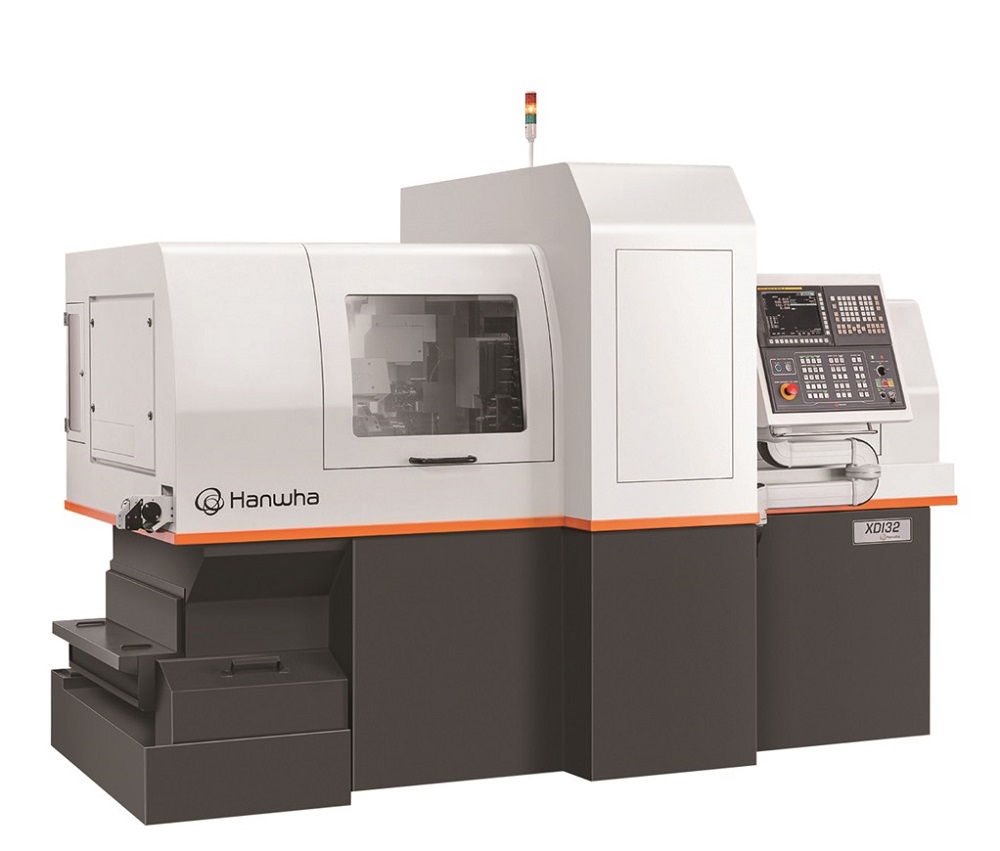To showcase the breadth of its machine tool offering, Dugard gave the Hanwha brand of sliding-head turning centres prominence on its stand at the MACH exhibition in Birmingham, UK, last month.The XD10, XD20 III and XDI 32 modelstook centre stage.
The smallest of the three, the Hanwha XD10,offers 10mm bar capacity for the mid-to-highvolume machining of small components. With a 15,000rpm/3.7kW spindle and eight front and six back-end turning tools, the XD10 is a flexible proposition. The machine also provides four ER11 front-end tools and four ER11M cross-drilling tools with eight ER11 sub-spindle back-working tools.
Next to the Hanwha XD10 was the larger Hanwha XD20 III. Available with FANUC or Siemens control, the XD20 III is for machining both short and long components with its extended Z1-axis stroke of 240mm and Z2-axis stroke of 286mm. With five cross-drilling stations as standard and a Y2 back-tool feature, the XD20 III demonstrates high productivity levels. Flexibility comes from the presence of six OD tooling stations, five ER16M positions for front and back working, five ER16 cross-drilling positions (with an additional two for off-centre drilling),and eight back-end tools configured as four fixed and four driven positions.
The third Hanwha machine on the stand was the XDI 32. The largest of the three Hanwha machines at MACH, the XDI 32 provides strong performance characteristics that stem from a robust machine construction, providing the base for precision, repeatability and smooth surface finish. The 32 mm diameter capacity machine features a 6500rpm sub-spindle and up to 26 tools.
For further information www.dugard.com






